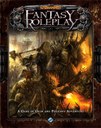If you search for video games and addiction, you will be drowned with "video game addiction treatment centers" to treat "addiction to video games", etc. You have to wade through pages and pages of results to find the real research showing that healthy balanced use of video games can be a valuable and powerful tool to treat many ailments, potentially even other addictions...
Sorted by Keyword Goal
If you search for video games and addiction, you will be drowned with "video game addiction treatment centers" to treat "addiction to video games", etc. You have to wade through pages and pages of results to find the real research showing that healthy balanced use of video games can be a valuable and powerful tool to treat many ailments, potentially even other addictions...
As per meeting discussion, quick list.

It is still far to early to be sure that this vision for the future will even be relevant several years from now, as the research data begins to roll in, but if any of the core assumptions hold even remotely true, then the long term goal of creating RPG therapy modules could become a reality.
RPG Research Vision Statement
Sure games are fun. Yet the play that's built into them does not make them false; it makes them psychologically truer even than everyday life. Games can Solve major crises, train war heroes, and civilize us all. What the world needs is not less time for playing games but more.

I have delved a little further into the Warhammer Fantasy Role Play rules, and from what I am seeing, I have a working theory as to where WH FRP may have it's usefulness for a specific subtype of role playing gamer, the immature player.

I had a recent question on Facebook about my posting: "Finished session 5 with RPG Preliminary Observation group 1, using Ea d20 RPG in a Tolkien Middle-earth setting." The question was from Sarah Lynne Bowman, author of The Functions of Role-playing Games: How Participants Create Community, Solve Problems and Explore Identity. She asked: "What's the research question/hypothesis?"
A brief summary of role-play as a construct and its researched benefits.
A brief overview of role-playing as a concept and its researched benefits.
RPG is an abbreviation for Role-Playing Game. Despite many misconceptions by media and the general public, the activity Role-Playing Gaming, has been show through decades of research to be able to provide many benefits to participants beyond just entertainment, including educational and therapeutic benefits. More information is provided below.

As asked in Geek Therapy Community on Facebook by Pâris Conte, "To those here that write campaigns, build campaign settings, etc... What system do you use to store and organise your notes? A hand written journal? Specific software? Why did you chose what you use?". Such a lengthy response would be a terrible wall of text on FB, so I'm answering it here where both longevity and formatting are MUCH better...
What do you think is a reasonable baseline for "safe" RPG participation? With different populations, when is there "too much of a good thing"? Do you have any anecdotes, or better yet research data that validates any particular stance? I am slowly building up the background for extensive research on the potential therapeutic uses of role-playing games in various formats (tabletop, live-action, computer-based) for various populations (TBI, PTSD, Autism-spectrum, LD's, etc.), with the assumption that there is potential benefit. But what are the potential risks?
While it does appear to be true about game system differences "in the wild" having a notable impact on play style, arguably the setting and Game Master may have a much greater impact than the RPG system.
This is a challenging question to answer definitively, and may have to be updated over time, but here is a best estimate about, at least published in some form, who first started using role-playing games intentionally as a modality to achieve therapeutics goals (rather than just the incidental or accidental benefits from RPG participation)...
Here is an example of how pervasive the inculcation of misinformation and myths of negative stereotypes about role-playing gamers has become in the united states.

Here are notes from the January 22nd, 2018 interview broadcast at Wizards of the Coast's Dungeons & Dragons, "Dragon Talk" with Greg Tito and Shelly Mazzanoble, interviewing John Welker & Hawke Robinson of RPG Research, Spokane Area Gaming Alliance, & RPG Therapeutics LLC, about role-playing game education, therapy, and more. Currently a work in progress. I am working on it each day in small snippets of time while juggling everything else. I will let folks know when it is ready for sharing.

Here are notes from the January 22nd, 2018 interview broadcast at Wizards of the Coast's Dungeons & Dragons, "Dragon Talk" with Greg Tito and Shelly Mazzanoble, interviewing John Welker & Hawke Robinson of RPG Research, Spokane Area Gaming Alliance, & RPG Therapeutics LLC, about role-playing game education, therapy, and more. Currently a work in progress. I am working on it each day in small snippets of time while juggling everything else. I will let folks know when it is ready for sharing.
Here are notes from the January 22nd, 2018 interview broadcast at Wizards of the Coast's Dungeons & Dragons, "Dragon Talk" with Greg Tito and Shelly Mazzanoble, interviewing John Welker & Hawke Robinson of RPG Research, Spokane Area Gaming Alliance, & RPG Therapeutics LLC, about role-playing game education, therapy, and more. Currently a work in progress. I am working on it each day in small snippets of time while juggling everything else. I will let folks know when it is ready for sharing.

A number of people have suggested undertaking research on whether using RPGs could be helpful or harmful for war veterans struggling with PTSD.
Document Actions
